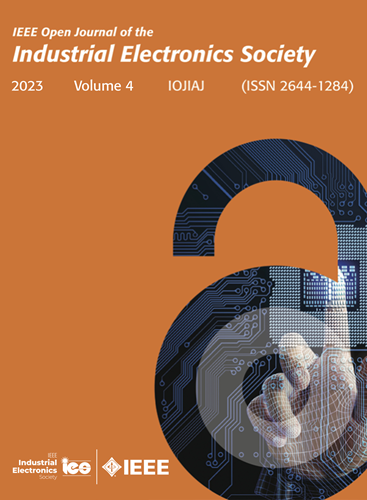在电动汽车无线充电系统中实现高输出稳定性和低磁场暴露的容错线圈阵列
IF 7.2
1区 工程技术
Q1 AUTOMATION & CONTROL SYSTEMS
引用次数: 0
摘要
无线充电摆脱了复杂的手动操作,但对于停放的电动汽车(EV)来说,其固有的对任意偏移的敏感性通常是一个问题。为了解决这一问题,本文提出了一种容错线圈阵列(MT-CA)作为中继器,它由三个相同的线圈组成,但具有不同的补偿。具体来说,MT-CA可以抑制输出波动和由于偏置引起的高漏磁场。通过引入电流比(CR)的概念,推导了一个详细的数学模型,直观地揭示了MT-CA在失调情况下的补偿策略。结果表明,MT-CA算法只需求解一个包含两个等式约束的二次规划(QP)问题即可实现其抗失调性能。在三种典型的错位情况下,在1kw样机上对MT-CA的有效性进行了评估。结果表明,各工况的输出电流波动仅为5.82%,峰值效率为93.79%。在满足安全限值的情况下,漏磁场衰减可达8.85 dB。MT-CA的提出可以为提高电动汽车无线充电系统的准直容限提供指导。本文章由计算机程序翻译,如有差异,请以英文原文为准。
A Misalignment-Tolerant Coil Array for High Output Stability and Low Magnetic Field Exposure in EV Wireless Charging System
Wireless charging liberates complex manual operations but typically suffers from an inherent sensitivity to the arbitrary offset for parked electric vehicle (EV). To address this issue, this article presents a misalignment- tolerant coil array (MT-CA) as a repeater, which consists of three identical coils but with distinct compensation. Specifically, MT-CA can suppress the output fluctuation and high leakage magnetic field due to offset. By applying the concept of current ratio (CR), a detailed mathematical model is derived to intuitively reveal the compensation strategy for MT-CA under misalignment. It suggests that anti-misalignment performance of MT-CA can be achieved by only solving a quadratic programming (QP) problem containing two equality constraints. The effectiveness of MT-CA is evaluated in a 1-kW prototype under three typical misaligned cases. The results state that the output current fluctuation among these cases is only 5.82% with a peak efficiency of 93.79%. Besides, decline of leakage magnetic field can reach up to 8.85 dB while meeting safety limit. The proposal of MT-CA can serve as guidelines to improve the misalignment tolerance of EV wireless charging system.
求助全文
通过发布文献求助,成功后即可免费获取论文全文。
去求助
来源期刊

IEEE Transactions on Industrial Electronics
工程技术-工程:电子与电气
CiteScore
16.80
自引率
9.10%
发文量
1396
审稿时长
6.3 months
期刊介绍:
Journal Name: IEEE Transactions on Industrial Electronics
Publication Frequency: Monthly
Scope:
The scope of IEEE Transactions on Industrial Electronics encompasses the following areas:
Applications of electronics, controls, and communications in industrial and manufacturing systems and processes.
Power electronics and drive control techniques.
System control and signal processing.
Fault detection and diagnosis.
Power systems.
Instrumentation, measurement, and testing.
Modeling and simulation.
Motion control.
Robotics.
Sensors and actuators.
Implementation of neural networks, fuzzy logic, and artificial intelligence in industrial systems.
Factory automation.
Communication and computer networks.
 求助内容:
求助内容: 应助结果提醒方式:
应助结果提醒方式:


